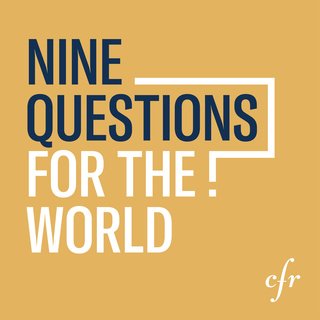- China
- RealEcon
- Topics
-
Regions
Featured
-
Explainers
Featured
Interactive by Olivia Angelino, Thomas J. Bollyky, Elle Ruggiero and Isabella Turilli February 1, 2023 Global Health Program
- Research & Analysis
-
Communities
Featured
Webinar with Carolyn Kissane and Irina A. Faskianos April 12, 2023
-
Events
Featured
Virtual Event with Emma M. Ashford, Michael R. Carpenter, Camille Grand, Thomas Wright, Liana Fix and Charles A. Kupchan June 25, 2024 Europe Program
- Related Sites
- More
Trailer: Nine Questions for the World
The world is changing, and its future is forming around high-stakes challenges such as climate change and shifting geopolitical power. In this limited series, Council on Foreign Relations President Richard Haass sits down with nine extraordinary thinkers to explore fundamental questions about the century to come.
0:00
0:00
x
Richard Haass and Margaret MacMillan, one of the world’s foremost historians, discuss how best to apply history to better understand current global challenges, including the erosion of democracy, the rise of China, and Vladimir Putin’s Russia.
Richard Haass and Michelle McMurry-Heath, president and CEO of the Biotechnology Innovation Institute, discuss the future of biotechnology and its potential impact on food production, climate change, energy production, and medicine.
Richard Haass and Minouche Shafik, director of the London School of Economics, assess the future of the labor market and examine how to provide workers with the skills and training they need in an era of ongoing technological change.
Top Stories on CFR
President Joe Biden ends his bid for reelection having revived American leadership in Asia and Europe and secured significant investments in the domestic economy, but his achievements will only last if his successor picks up where he leaves off.
As diplomacy ramps up, so too must humanitarian innovation.
Student-led protests in Dhaka demonstrate popular discontent toward Sheikh Hasina’s repressive governance.
 Online Store
Online Store

